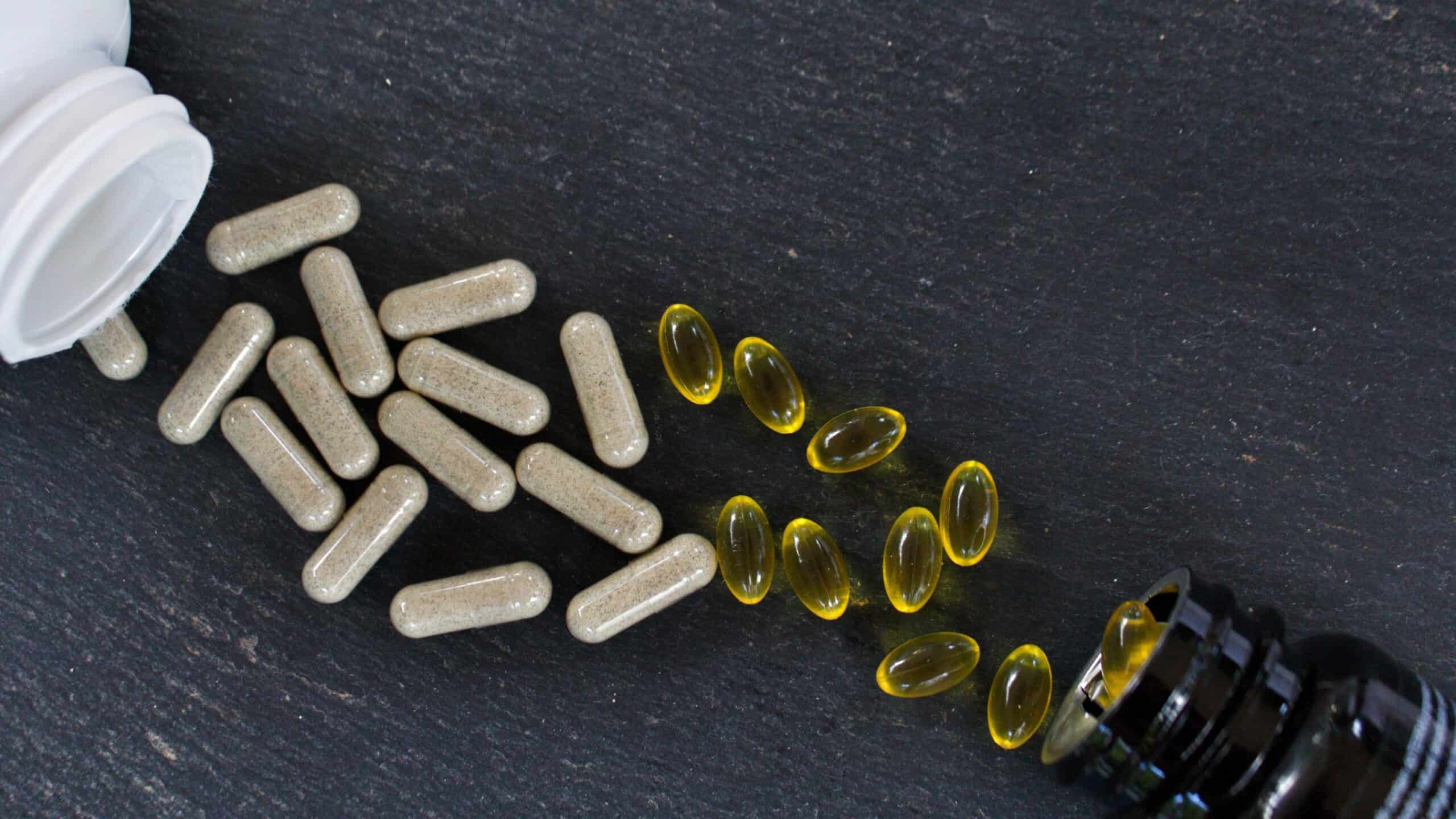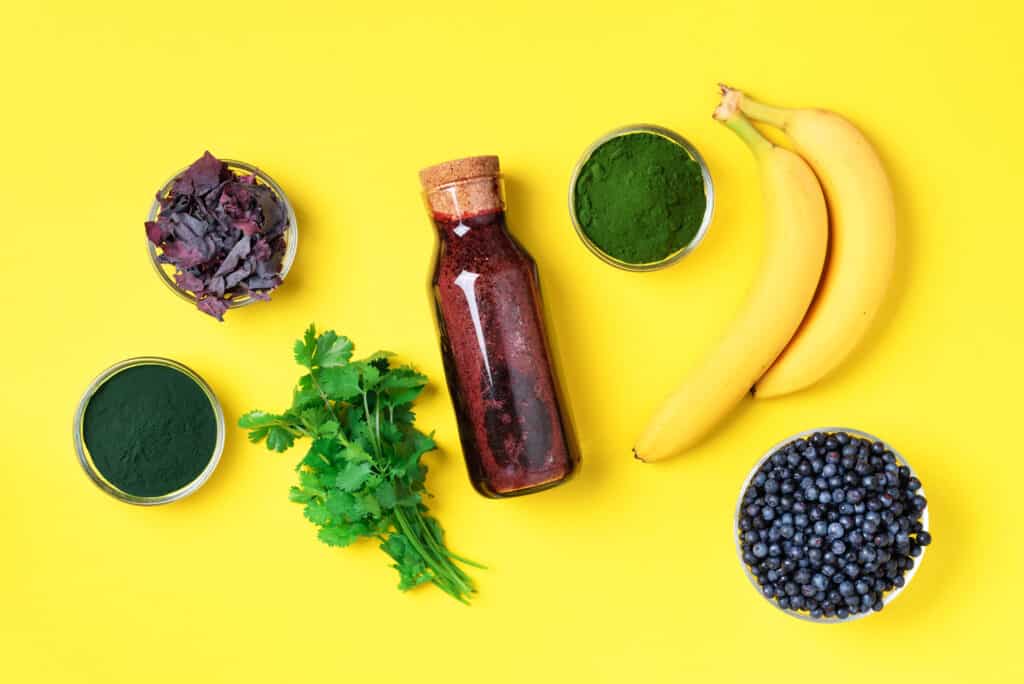Heavy metal detoxing is crucial for improving their overall well-being and maintaining optimal health. The presence of toxic metals in our environment can lead to chronic heavy metal poisoning, which may manifest as various symptoms affecting both physical and mental health. This post will explore the indicators of heavy metal poisoning, dietary choices that can help in detoxification, supplements to aid in the process, and lifestyle modifications required to remove toxins successfully.
Realizing the indications connected with metal poisoning is fundamental for recognizing potential introduction sources and taking fitting activity. We will discuss common manifestations such as fatigue, digestive problems, joint pain, and neurological issues. Additionally, you’ll learn about nutrient-rich foods like chlorella and spirulina that help bind with toxic metals while promoting their removal from your body.
Incorporating specific supplements into your regimen can also significantly enhance your body’s natural ability to detoxify itself from harmful substances like mercury or arsenic compounds. Lastly, we will explore how adopting healthier habits – including avoiding processed food items high in additives – can support an effective heavy metal detox program.
Heavy Metal Poisoning Symptoms

Heavy metal poisoning occurs when excessive levels of heavy metals accumulate in the body, leading to various health issues. Recognizing the symptoms is crucial for early detection and treatment. Some common indications of heavy metal poisoning include exhaustion, digestive issues, aching joints, and neurological troubles.
Fatigue as a result of toxin accumulation
One of the primary symptoms of heavy metal poisoning is chronic fatigue. Excess ROS generated by toxic metals such as mercury or lead can cause oxidative stress, leading to cell and tissue damage which results in chronic fatigue. The excess ROS can damage cells and tissues, leaving you feeling constantly tired and drained.
Digestive problems linked to heavy metal exposure
Exposure to toxic heavy metals like arsenic or cadmium can lead to gastrointestinal distress, such as nausea, vomiting, diarrhea, or constipation due to disruption of normal gut function and damage caused by these substances. These harmful substances disrupt normal gut function by damaging intestinal lining cells and altering gut microbiota composition – ultimately leading to various digestive problems.
Joint pain caused by inflammation from toxins
- Inorganic arsenic: Exposure to high amounts of inorganic arsenic through contaminated water sources has been associated with an increased risk of developing joint pain due to its ability to trigger inflammation within joints.
- Manganese toxicity: Manganese toxicity can also contribute to joint discomfort since it interferes with essential minerals like calcium required for maintaining healthy bones & joint structure.
Neurological issues due to heavy metal toxicity
Heavy metals like lead, mercury, and aluminum can interfere with normal brain functioning and thus contribute to neurological damage. They may affect neurotransmitter production, impair cognitive abilities, or even induce neurodegenerative diseases such as Alzheimer’s or Parkinson’s disease. For instance:
- Lead poisoning: Chronic exposure to lead can result in learning disabilities, memory problems, and behavioral changes.
- Mercury toxicity: High levels of mercury from sources like dental amalgams or contaminated fish consumption have been linked with tremors, coordination difficulties, and sensory disturbances.
In order to prevent the onset of these symptoms and protect your overall well-being, it is essential to be aware of potential heavy metal exposures in your environment – such as through drinking water sources or certain foods – and take necessary steps towards reducing them by following a comprehensive heavy metal detox program.
The accumulation of heavy metals can cause a variety of symptoms, so it is important to be aware of the signs and seek medical advice if necessary. Fortunately, there are various edibles that can assist in removing these pollutants from the body and restoring equilibrium.
Foods That Help Detoxify Heavy Metals

Incorporating certain foods into your diet can help remove harmful metals from your body naturally. These foods are rich in nutrients supporting detoxification and promoting overall health.
Chlorella and Spirulina for Binding with Toxic Metals
Chlorella and spirulina are nutrient-dense algae known for their ability to bind with toxic metals, making eliminating them easier for the body. Adding these superfoods to smoothies or taking them as supplements can aid in heavy metal detoxification.
Garlic’s Sulfur Compounds Aiding Detoxification
Garlic, a common kitchen ingredient, contains sulfur compounds that assist in detoxifying the body by supporting liver function. Consuming raw garlic or adding it to dishes enhances flavor and helps remove heavy metals from the system.
Cilantro Promoting Removal of Heavy Metals
Cilantro (Coriandrum sativum), an aromatic herb commonly used in cooking, has been found to facilitate the removal of heavy metals like lead and mercury from the body. Incorporate cilantro into salads, soups, or sauces for its cleansing benefits alongside its refreshing taste.
Cruciferous Vegetables Supporting Liver Function
- Kale: Rich in antioxidants and fiber, kale helps support liver function and detoxification processes.
- Broccoli: Containing high amounts of glucosinolates, broccoli aids in neutralizing harmful substances and promoting their elimination from the body.
- Cauliflower: Similar to broccoli, cauliflower is rich in antioxidants that help protect cells from oxidative stress caused by toxic heavy metals.
- Cabbage: As a cruciferous vegetable, cabbage supports liver health and assists with detoxification. Its high fiber content also promotes healthy digestion.
Maintaining a diet rich in these foods can significantly contribute to your heavy metal detox efforts while supporting overall well-being. Therefore, seeking medical advice before making any dietary alterations or beginning a detox program is advisable.
Consuming items such as chlorella, spirulina, garlic, cilantro, and cruciferous vegetables can help the body detoxify heavy metals naturally; vitamins C, glutathione, and magnesium may also be beneficial in this regard by boosting immunity and antioxidant defense. Additionally, supplementing with vitamins C, glutathione and magnesium can further aid in this process by boosting immune system function and antioxidant defense mechanisms.
The Role of Supplements in Heavy Metal Detoxification

In addition to dietary changes, supplements may be necessary if you aren’t getting enough essential vitamins or minerals needed for effective detoxification. Consult with your doctor before taking any supplements during a heavy metal detox process. Some key supplements that can support the body’s natural ability to remove toxic metals include:
Vitamin C in enhancing immune system function
Vitamin C is an antioxidant that plays a crucial role in supporting the immune system and protecting cells from oxidative stress caused by heavy metals. It also helps improve the absorption of iron, which is essential for red blood cell production and overall health. Consume citrus fruits and vegetables such as bell peppers and broccoli for optimal vitamin C intake.
Glutathione boosting antioxidant defense mechanisms
Glutathione is often referred to as the “master antioxidant” due to its powerful ability to neutralize free radicals generated by reactive oxygen species (ROS) associated with heavy metal toxicity. This potent molecule aids in liver detoxification processes while also helping regenerate other antioxidants like vitamin E and vitamin C within the body. Foods rich in glutathione include avocados, spinach, garlic, and cruciferous vegetables like kale or Brussels sprouts.
Magnesium in supporting nervous system functions
Magnesium plays a vital role in over 300 enzymatic reactions within the body, including those involved in detoxification and nervous system functions. It has been found to help reduce the toxic effects of heavy metals such as lead and mercury by supporting cellular repair mechanisms. Nuts, seeds, whole grains, leafy green vegetables, and legumes are all sources of magnesium that can be beneficial for detoxification.
Remember that supplements should not replace a balanced diet but rather complement it to ensure optimal nutrient intake during a heavy metal detox program. Always seek medical advice before beginning any supplementation plan to prevent possible negative consequences or interactions.
Supplemental nutrients play an important role in heavy metal detoxification, helping to boost the body’s natural defenses and support key functions. Making lifestyle alterations, like lessening tension and abstaining from processed foodstuffs, can be advantageous in order to create a more beneficial atmosphere for detoxification.
Lifestyle Changes To Support A Healthy Detox Diet

Adopting specific lifestyle habits can significantly enhance the effectiveness of a heavy metal detox diet plan. Eliminating processed foods, reducing stress levels, and staying hydrated are key factors contributing to an efficient cleansing routine. This section will discuss various lifestyle changes you can implement to support your heavy metal detox journey.
Avoiding Processed Food Items High in Additives
Processed edibles frequently contain copious amounts of additives and preservatives that can heighten your exposure to noxious metals, for example, lead or mercury. You reduce the risk of chronic heavy metal poisoning by eliminating these harmful substances from your diet. Consume a diet of wholesome, nutrient-rich foods such as organic fruits and vegetables, lean proteins, and healthy fats to reduce the risk of chronic heavy metal poisoning.
- Eat organic produce whenever possible to minimize pesticide exposure.
- Avoid canned food items containing traces of harmful chemicals from packaging materials.
- Cut down on refined sugars and unhealthy fats found in many processed snacks and desserts.
Reducing Stress Through Meditation or Exercise
Stress has been linked with increased oxidative stress, making it harder for our bodies to remove toxins effectively. Engaging in regular meditation practices or physical exercise can help lower stress levels while improving overall well-being during a heavy metal detox process. Consider incorporating one or more of the following activities into your daily routine:
- Meditation: Practice mindfulness meditation or deep breathing exercises to calm your mind and reduce stress.
- Yoga: Participate in yoga classes that focus on gentle stretches and relaxation techniques.
- Engage in aerobic activities such as walking, jogging, swimming, or cycling to promote feelings of well-being by releasing endorphins.
Staying Well-Hydrated Throughout the Day
Drinking clean water is essential for flushing out toxins from your body during a heavy metal detox. Staying hydrated helps remove toxic metals and supports overall health by maintaining proper kidney function, regulating body temperature, and promoting healthy digestion. Follow these tips to ensure you stay adequately hydrated:
- Aim for at least eight glasses of water per day – more if you are physically active or live in hot climates.
- Incorporate herbal teas into your daily routine as an alternative source of hydration with added benefits such as antioxidants and anti-inflammatory properties.
- Avoid excessive consumption of caffeine or alcohol, which can lead to dehydration and hinder the detoxification process.
Making small changes to your lifestyle can help support a healthy detox diet, such as avoiding processed foods high in additives and reducing stress through meditation or exercise. Moreover, it is essential to be aware of the dangers posed by heavy metal toxicity if left untreated in order to take steps to safeguard one’s well-being.
Risks Associated With Untreated Heavy Metal Toxicity

Long-term contact with heavy metals may lead to serious medical issues and impairment of organs. If left untreated, heavy metal poisoning may become life-threatening. Understanding the risks associated with untreated toxicity is essential for timely intervention.
Kidney Damage from Prolonged Exposure to Toxic Metals
One of the primary organs affected by heavy metal toxicity is the kidneys. These vital organs are responsible for filtering waste products and toxins from our bloodstream, including harmful substances like toxic heavy metals. Chronic exposure to high amounts of these pollutants can lead to kidney damage or even complete renal failure in extreme cases (source). Drinking clean water and minimizing environmental pollutants exposure are crucial steps towards reducing this risk.
Neurological Disorders Due To Accumulation Of Toxins In The Brain
- Mercury Poisoning: Mercury toxicity has been linked with neurological disorders such as tremors, memory loss, and cognitive decline (source). Consequently, it is important to take into account the potential presence of mercury in seafood when planning meals.
- Lead Poisoning: Lead poisoning can also result in severe neurological issues ranging from learning disabilities in children to mood disorders and memory problems in adults (source). Contaminated water, soil, and paint are common sources of lead exposure.
- Arsenic Toxicity: Inorganic arsenic compounds found in contaminated water or certain foods can cause nerve damage and result in symptoms like numbness, tingling sensations, and muscle weakness (source). Securing access to pure drinking water is essential for avoiding this type of toxicity.
Cardiovascular Issues Related To Heavy Metal Toxicity
Heavy metal exposure has also been linked with cardiovascular problems such as high blood pressure, heart disease, and stroke (source). Oxidative stress caused by reactive oxygen species generated during heavy metal detoxification processes may contribute to these issues. To reduce the risk of cardiovascular issues caused by heavy metal toxicity, it is recommended to lead a healthy lifestyle that includes regular exercise and an antioxidant-rich diet and minimize exposure to toxins.
Frequently Asked Questions Heavy Metal Detox
Can you detox heavy metals from your body?
Yes, detoxing heavy metals from the body through a combination of dietary changes, supplements, and lifestyle modifications is possible. Consuming foods rich in antioxidants and nutrients that support liver function can help eliminate toxins. Additionally, certain supplements like chlorella and glutathione may aid in detoxification.
What is the best way to detox heavy metals from the body?
The best way to detox heavy metals involves incorporating nutrient-dense foods such as garlic, cilantro, cruciferous vegetables, and spirulina into your diet. These foods promote toxin removal while supporting overall health. Supplementing with vitamins C and E along with magnesium can also be beneficial. Lifestyle changes like staying hydrated and reducing stress are crucial for effective detoxification.
How long does it take to detox from heavy metals?
The duration of a heavy metal detox varies depending on individual factors such as exposure levels, overall health status, and adherence to a proper diet plan. It may take several weeks or even months for noticeable improvements; however, consistency in following an appropriate regimen will yield better results over time.
What are the benefits of heavy metal detox?
A successful heavy metal detox offers numerous benefits, including improved energy levels due to reduced fatigue caused by toxin accumulation; enhanced cognitive function resulting from decreased neurological issues; relief from joint pain associated with inflammation; better digestion; strengthened immune system response; prevention of kidney damage & cardiovascular problems linked with untreated toxicity.
Conclusion
Symptoms linked to heavy metal poisoning can involve tiredness, aches in the joints, and neurological problems. However, there are various ways to support the body’s natural detoxification process and reduce heavy metal accumulation.
Eating foods like chlorella and garlic, taking vitamin C and glutathione supplements, and making lifestyle changes like reducing stress can all aid in heavy metal detoxification. It’s important to address heavy metal toxicity promptly to avoid potential long-term health risks.




